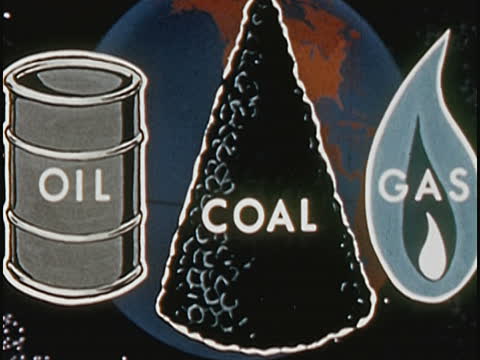In the grand tapestry of our global energy landscape, gasoline taxes emerge as a potent thread, intertwining economic policy with environmental stewardship. The crux of the matter lies in understanding how increasing these taxes can catalyze energy conservation, curtailing fossil fuel consumption and fostering a healthier planet. Just as a gardener prunes a tree to encourage robust growth, higher gasoline taxes can trim away the excesses of energy use, directing society toward more sustainable practices.
The first dimension to consider is the fundamental principle of economics: price elasticity of demand. When gasoline taxes are elevated, the immediate consequence is a rise in fuel prices. Consumers, akin to moths drawn to a flame, often gravitate towards convenience, neglecting the long-term consequences of their choices. However, as prices ascend, the allure diminishes. Studies have consistently shown that with higher fuel costs, individuals are likely to reevaluate their driving habits, opting for more efficient vehicles, utilizing public transportation, or even engaging in carpooling. This behavioral shift acts as a bellwether for energy conservation, underscoring the influence of economic forces on energy consumption.
Furthermore, the revenues generated from increased gasoline taxes present a unique opportunity for investment in sustainable infrastructure. Just as streams feed into larger rivers, these funds can be channeled toward the development of alternative energy sources and the enhancement of public transport systems. Consider the prospect of reinforcing electric vehicle (EV) charging stations or advancing the reach of mass transit options. By curtailing gasoline consumption through higher taxes, we don’t merely reduce emissions; we simultaneously sow seeds for a greener tomorrow. Indeed, redirecting these funds can create a virtuous cycle where the benefits of energy conservation foster sustainable technological innovations.
Additionally, the psychosocial aspects of energy conservation cannot be overstated. Elevated gasoline taxes can serve as a clarion call, awakening collective consciousness regarding environmental responsibility. When individuals confront the tangible costs of their fossil fuel consumption, awareness burgeons. The metaphor of a shared journey resonates here; society becomes more attuned to the collective goal of reducing carbon footprints. Public discourse may evolve, fostering a sense of kinship towards sustainable practices. Community initiatives encouraging bicycle use or regional “no-car days” can sprout from this newfound awareness, leading to a more profound commitment to energy conservation.
In the realm of habit formation, the impact of higher gasoline taxes may indeed crystallize into lasting behavioral change. Human habits are notoriously resilient, akin to entrenched roots. However, extraordinary soil conditions—such as the pressure of increased fuel prices—can incite those roots to shift, seeking out new sources of sustenance. Individuals may transition to walking or biking for shorter trips or adopting a lifestyle that prioritizes efficiency in energy use. This change transcends mere self-interest; it fosters a community-oriented mindset, as shared modes of transport are embraced and public spaces begin to flourish in the absence of incessant vehicular traffic.
Moreover, higher gasoline taxes can compel technology to evolve. The automobile industry operates within a competitive landscape, where consumer preferences shape innovation trajectories. As the demand for fuel-efficient vehicles rises due to fiscal pressures, manufacturers may be incentivized to accelerate research and development in green technologies. Electric and hydrogen-powered vehicles are no longer distant dreams but tangible realities, spurred by changing market dynamics. This technological renaissance can potentially cascade into various sectors, yielding enhanced efficiencies across the energy spectrum.
Equally significant is the influence of higher gasoline taxes on urban planning and development. Cities may transform from sprawling car-centric designs into pedestrian-friendly environments, brimming with parks and cycling lanes. The ocular metaphor of an unfolding flower illustrates this evolution; just as petals open to the sunlight, cities can similarly unfurl toward sustainability. Urban density, intelligently designed, reduces dependence on cars and promotes energy conservation. This architectural paradigm shift cultivates communities where accessibility and efficiency converge seamlessly.
Despite the multifaceted benefits of higher gasoline taxes, the political landscape is often fraught with resistance. Critics frequently argue that these taxes disproportionately impact lower-income families. However, this contention overlooks the opportunity to implement progressive tax systems. Just as a well-crafted melody harmonizes various notes, a tailored tax structure can ensure that those most affected are compensated through rebates or subsidies by redirecting the tax revenue for social equity initiatives. These measures can mitigate economic burdens while simultaneously advocating for environmental sustainability.
In summation, the correlation between higher gasoline taxes and energy conservation is palpably intricate. Just as a maestro conducts an orchestra to produce a harmonious symphony, policymakers wield the power to orchestrate energy conservation initiatives through fiscal measures. By elevating gasoline taxes, society not only reaps the dividends of reduced energy consumption but also cultivates a transformational ethos of sustainability, equity, and innovation. Ultimately, this approach aligns both economic incentives and environmental responsibility, steering humanity toward a greener and more sustainable horizon.






